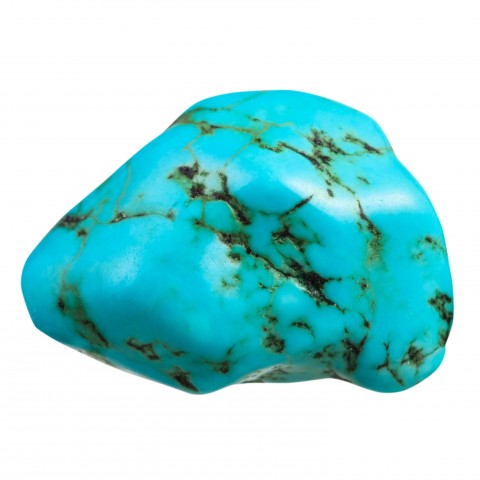
So, you’ve just reached the intermediate level, and nobody can call you a beginner anymore.
Congratulations! You have already outdone most of your fellow students, who get some basics down and then lose interest, can’t find the time or energy, or can’t build a good learning routine. I should know—I’ve been an eternal beginner in too many languages!
One of the first steps now is to learn some intermediate French words and how to use them. But first, a note:
Reaching the intermediate level is an amazing achievement in itself, but this is also when it gets tough. As your fluency level increases, you’ll start experiencing diminishing returns and realize that your progress is no longer linear. The more fluent you get, the more time it takes to improve.
This is when setting clear goals and maintaining long-term study habits really matters. Having a good overview of what’s ahead is a great way to focus on the bigger picture.
In this article, you’ll find a summary of the intermediate French words you should know as you steadily climb your way to the next level. While this is by no means an exhaustive list, it’s packed full of invaluable vocabulary, from pronouns and verbs to adjectives and large numbers.

Captivate your audience with the right words.
 Table of Contents
Table of Contents
1. Pronouns
If you’re seeking to learn intermediate French vocabulary, you should already know the basic pronouns. To be more specific:
- Personal subject pronouns (je, vous, elles, etc.)
- Impersonal pronouns (ça, ce, il)
- Reflexive pronouns (me, te, se, etc.)
- Basic interrogative pronouns (qui, où, quand, etc.)
- A few common indefinite pronouns (tout, rien, etc.)
Now, here are some more advanced French pronouns you should learn at the intermediate level.
1 – Stressed Pronouns
Also known as emphatic pronouns, they may be used in place of a subject or object and can only refer to people.
They can be used after prepositions (de, à, avec, etc.):
- Elle parle de toi. (“She talks about you.”)
Or, they can be used after the word que in comparisons (plus que, moins que):
- Tu es plus grand qu’elle. (“You are taller than her.”)
| Person | French pronoun | English |
| 1st person sg. | moi | “me” |
| 2nd person sg. | toi | “you” |
| 3rd person sg. | lui / elle | “he” / “him” / “she” / “her” |
| 1st person pl. | nous | “us” |
| 2nd person pl. | vous | “you” |
| 3rd person pl. | eux / elles | “them” |
2 – Direct and Indirect Pronouns
Direct pronouns replace a COD (Complément d’Objet Direct). In simpler terms, they answer the question “Who?” or “What?”
- Je bois une bière. (“I drink a beer.”)
- Je la bois. (“I drink it.”)
Indirect pronouns replace a COI (Complement d’Objet Indirect). They answer the question “To whom?” or “To what?”
- Je parle à Simon. (“I talk to Simon.”)
- Je lui parle. (“I talk to him.”)
| Direct pronouns | Indirect pronouns | |
| 1st person sg. | me | me |
| 2nd person sg. | te | te |
| 3rd person sg. | le / la | lui |
| 1st person pl. | nous | nous |
| 2nd person pl. | vous | vous |
| 3rd person pl. | les | leur |
3 – Adverbial Pronouns
There are only two adverbial pronouns in French, but they are really important.
Y is used to replace à [quelque chose] (“to [something]” / “about [something]”) or en [quelque chose] (“in [something]”).
- Nous allons en Estonie. (“We are going to Estonia.”)
Nous y allons. (“We are going there.”)
- Je pense à mon projet. (“I think about my project.”)
J’y pense. (“I think about it.”)
En is used to replace de(s) ____ (“some ____” / “of ____”).
- J’ai une bière. (“I have a beer.”)
J’en ai une. (“I have one.”)
- Nous avons du temps. (“We have time.”)
Nous en avons. (“We have some.”)
4 – Relative Pronouns
Although these pronouns don’t have a direct translation in English, it’s easy enough, with examples, to figure out how they work.
| que (“that”) | Je sais que tu aimes ça. (“I know that you like that.”) |
| qui (“who”) | J’ai un ami qui vient ce soir. (“I have a friend who’s coming tonight.” |
| où (“where” / “when”) | C’est l’endroit où je travaille. (“This is the place where I work.”) |
| dont (“whose” / “that”) | L’homme dont elle parle (“The man [that] she’s talking about”) |
5 – Interrogative Pronouns
Since you already know the basic interrogative pronouns (qui, où, quand, quoi), let’s add a few more to your French arsenal.
| lequel lesquels laquelle lesquelles (“which one”) | Lequel tu veux? (“Which one do you want?”) Lesquels sont les meilleurs ? (“Which ones are the best?”) Laquelle est la plus jolie ? (“Which one is the prettiest?”) Lesquelles veux-tu manger ? (“Which ones do you want to eat?”) |
| quel quels quelle quelles (“which”) | Quel vélo est à vendre ? (“Which bike is for sale?”) |
6 – Indefinite Pronouns
And finally, here are a couple of new indefinite pronouns for your collection:
| chacun (“everyone” / “every man”) | Chacun paye sa part. (“Everyone pays their share.”) |
| certains (“some [people]”) | Certains sont venus. (“Some people came.”) |
- → To learn more about pronouns, their various categories, and how to use them, be sure to stop by our complete guide on FrenchPod101.com.

Lequel tu préfères ? (“Which one do you prefer?”)
2. Verbs
Assuming you know all about the most common French verbs, starting with our two auxiliaries (être and avoir) as well as the most useful and highly irregular specimens (such as aller or vouloir), it’s time to hone your skills with some additional high-profile verbs.
- → Whenever you need a reminder on how to deal with regular, irregular, or reflexive verbs, you can have a look at our complete conjugation guide on FrenchPod101.com.
| servir | “to serve” |
| laisser | “to leave” / “to allow” / “to let” |
| envoyer | “to send” |
| recevoir | “to receive” |
| vivre | “to live” |
| appeler | “to call” |
| rappeler | “to remind” / “to call back” |
| présenter | “to introduce” / “to present” |
| accepter | “to accept” |
| refuser | “to refuse” |
| agir | “to act” |
| jouer | “to play” |
| reconnaître | “to recognize” / “to acknowledge” |
| choisir | “to choose” / “to select” |
| toucher | “to touch” |
| expliquer | “to explain” |
| se lever | “to stand up” / “to get out of bed” |
| ouvrir | “to open” |
| gagner | “to win” / “to earn” |
| perdre | “to lose” |
| exister | “to exist” |
| réussir | “to succeed” / “to manage” |
| changer | “to change” |
| travailler | “to work” |
| dormir | “to sleep” |
| marcher | “to walk” |
| essayer | “to try” / “to attempt” |
| empêcher | “to prevent” / “to stop” |
| reprendre | “to resume” / “to take back” |
| cuisiner | “to cook” |
| appartenir | “to belong” |
| risquer | “to risk” |
| apprendre | “to learn” / “to teach” |
| rencontrer | “to meet” |
| créer | “to create” |
| obtenir | “to obtain” / “to get” |
| entrer | “to enter” |
| sortir | “to exit” / “to go out” / “to leave” |
| proposer | “to offer” / “to suggest” |
| apporter | “to bring” |
| utiliser | “to use” |
| atteindre | “to reach” / “to achieve” |
| préparer | “to prepare” / “to make” |
| ajouter | “to add” |
| payer | “to pay” |
| vendre | “to consider” / “to study” |
| acheter | “to buy” |
| pousser | “to push” |
| tirer | “to pull” / “to shoot” |
| voyager | “to travel” |

Elle voyage en France. (“She travels to France.”)
3. Numbers
You can go a long way with basic numbers, and as you learn a new language, counting from 1 to 10 is usually more than enough. But now that you’re approaching the intermediate French level, it’s time to go further.
This section will give you a leg up when it comes to handling big numbers for big prices, years, or someone’s age. It would be a shame to get a big French paycheck if you didn’t know the words to brag about it!
1 – From 11 to 20
| 10 | Dix |
| 11 | Onze |
| 12 | Douze |
| 13 | Treize |
| 14 | Quatorze |
| 15 | Quinze |
| 16 | Seize |
| 17 | Dix-sept |
| 18 | Dix-huit |
| 19 | Dix-neuf |
| 20 | Vingt |
2 – Counting Up to 100
| 30 | Trente |
| 40 | Quarante |
| 50 | Cinquante |
| 60 | Soixante |
| 70 | Soixante-dix |
| 80 | Quatre-vingt |
| 90 | Quatre-vingt-dix |
| 100 | Cent |
- → Feeling a bit rusty with big numbers such as soixante-quatorze (74) or quatre-vingt-douze (92)? Head over to our full guide on French numbers for an in-depth reminder.
3 – To 1,000 and Beyond
| 200 | Deux-cent |
| 300 | Trois-cent |
| (…) | |
| 900 | Neuf-cent |
And from there, the sky’s the limit!
| 1,000 | Mille |
| 10,000 | Dix-mille |
| 100,000 | Cent-mille |
| 1,000,000 (106) | Un million |
4. Nouns
To expand your vocabulary and the variety of topics you can talk about, here’s a list of nouns you might want to add to your flashcards.
- → For more nouns with audio recordings for pronunciation practice, visit any of FrenchPod101’s many free vocabulary lists. Not sure where to start? We recommend 50 Most Common French Nouns.
1 – Time
| un siècle | “century” |
| une matinée | “morning” |
| The difference between un matin and une matinée is subtle. They both mean “morning,” but matinée is often used when talking about a period of time and what we do in this period. | |
| une soirée | “evening” |
| Same goes for un soir and une soirée. There is little difference between the two, but we often use une soirée when talking about leisure activities, while un soir is more neutral. | |
| un trimestre | “trimester” / “quarter” |
| un semestre | “semester” |
2 – Places
| une région | “region” |
| un département | “department” |
| Metropolitan France is divided into 13 regions that are split into a total of 101 departments. For example, Morbihan is a department within the Bretagne region. | |
| un village | “village” |
| un parc | “park” |
| une banque | “bank” |
| une pharmacie | “pharmacy” |
| un hôpital | “hospital” |
| This ^ on the ô is not pronounced; it’s just there as a tribute to the spelling of the word in Old French: hospital. | |
| une boulangerie | “bakery” |
| Have you ever noticed that in France, you can buy your bread from two different shops? Une boulangerie makes and sells bread, while une pâtisserie is more specialized toward cakes and sweets. | |
| une plaine | “plain” |
| une falaise | “cliff” |
| une plage | “beach” |
| une île | “island” |
| une colline | “hill” |
3 – Technology
| un écran | “screen” |
| un clavier | “keyboard” |
| une souris | “mouse” |
| Just like in English, une souris is also the word for the cute furry animal. | |
| une tablette | “tablet” |
| une télé | “TV” |
| The full word is télévision, but the abbreviation is just as popular as the English “TV.” | |
| une console | “console” |
| un chargeur | “charger” |
| un site / un site web | “website” |
| un compte | “account” |
| un mot de passe | “password” |
| It may seem more complicated, but it’s actually a direct translation, using un mot (“word”). | |
| un fichier | “file” |
| un répertoire | “folder” |
| un logiciel | “software” |
4 – Home
| une pièce | “room” |
| un étage | “floor” |
| In France, le premier étage (literally: “the first floor”) is what most North Americans call the second floor. This is because the word étage has a slightly different meaning, and we don’t consider le rez-de-chaussée (“the ground floor”) to be un étage.
| |
| un salon | “living room” |
| une salle de bain | “bathroom” |
| un frigo | “fridge” |
| une armoire | “cabinet” / “wardrobe” / “cupboard” / “closet” |
5 – City & Transportation
| une banlieue | “suburb” / “outskirt” |
| un quartier | “district” / “neighborhood” / “area” |
| une autoroute | “highway” |
| une ruelle | “alley” |
| un rond-point | “roundabout” |
| un carrefour | “crossroad” / “intersection” / “junction” |
6 – People
| un oncle | “uncle” |
| une tante | “aunt” |
| un petit-fils | “grandson” |
| une petite-fille | “granddaughter” |
| un bébé | “baby” |
| un grand-père | “grandfather” |
| une grand-mère | “grandmother” |
7 – Body Parts
| un doigt | “finger” |
| You should not get distressed by the weird spelling. The letters “gt” at the end of doigt are silent. | |
| un dos | “back” |
| un ventre | “belly” |
| un sein | “breast” |
| une épaule | “shoulder” |
| une jambe | “leg” |
| une cuisse | “thigh” |
| une fesse | “butt cheek” |
| un pied | “foot” |
| une joue | “cheek” |
| un menton | “chin” |
| un front | “forehead” |
8 – Food & Dining
| un couteau | “knife” |
| une fourchette | “fork” |
| une cuillère | “spoon” |
| un vin | “wine” |
| un plat | “dish” |
| une entrée | “starter” |
| un dessert | “dessert” |
| une boisson | “drink” |
| un café | “coffee” |
9 – Work & Studies
| un infirmier / une infirmière | “nurse” |
| un policier / une policière | “police officer” |
| un avocat / une avocate | “lawyer” |
| un serveur / une serveuse | “waiter” |
| une université | “university” |
10 – Clothes
| un pantalon | “pants” / “trousers” |
| un pull | “sweater” |
| un t-shirt | “T-shirt” |
| une chemise | “shirt” |
| un manteau | “coat” |
| une chaussette | “sock” |
| une chaussure | “shoe” |
| une robe | “dress” |
| un chapeau | “hat” |

Elle porte un chapeau. (“She wears a hat.”)
5. Conjunctions
As you may already know the most basic ones (et, ou, si, parce que, mais, pour par), we’ll move on to the more complex conjunctions.
Ni…ni (“Nor”)
- Je ne bois ni bière ni vin. (“I drink neither beer nor wine.”)
Alors (“Then” / “So”)
- Je n’ai pas soif, alors je ne bois pas. (“I’m not thirsty, so I don’t drink.”)
Sinon (“Otherwise”)
- Je ne bois pas, sinon je ne peux pas conduire. (“I’m not drinking, otherwise I cannot drive.”)
Puisque (“Since” / “As”)
- Puisque tu es là, tu veux entrer ? (“Since you’re here, do you want to come in?”)
Quand (“When”)
- Quand je suis fatigué, je baille. (“When I’m tired, I yawn.”)
Donc (“So” / “Therefore”)
- Je pense donc je suis. (“I think, therefore I am.”)
Du coup (“So” / “Therefore”) [Casual]
- J’avais soif, du coup j’ai bu. (“I was thirsty, so I drank.”)
6. Adjectives
Although not as essential for beginners who just want to express basic ideas, adjectives are a great way for intermediate French learners to make their sentences more meaningful and flavorful.
- → If you’re yearning for more after zipping through this list, we have many more in our Top 100 French Adjectives article on FrenchPod101.com.
| génial | “great” / “awesome” / “amazing” |
| horrible | “horrible” |
| bizarre | “weird” |
| compliqué | “complicated” |
| epais | “thick” |
| fin | “thin” |
| proche | “near” |
| lointain | “far” |
| etroit | “narrow” |
| large | “wide” |
| doux | “soft” |
| dur | “hard” |
| plein | “full” |
| vide | “empty” |
| léger | “light” |
| lourd | “heavy” |
| unique | “unique” |
| spécial | “special” |
| particulier | “particular” / “special” / “specific” |
| neuf | “new” (as in: never used) |
| pauvre | “poor” |
| riche | “rich” / “wealthy” |
| propre | “clean” |
| sale | “dirty” |
| faible | “weak” |
| mince | “slim” |
| mignon | “cute” |
| méchant | “mean” / “wicked” / “evil” |
| drôle | “funny” |
| sympa | “nice” |
| heureux | “happy” |
| triste | “sad” |
| calme | “quiet” |
| excité | “excited” |
| dangereux | “dangerous” |
| ennuyeux | “boring” / “annoying” |
| gras | “fat” |
| epicé | “spicy” |
| second deuxième | “second” |
| prochain | “next” |
| précédent | “previous” |
| avant-dernier | “penultimate” / “second-to-last” |
| orange | “orange” |
| rose | “pink” |
| gris | “gray” |
| violet | “purple” |
| magenta | “magenta” |
| turquoise | “turquoise” |

Une pierre turquoise (“A turquoise stone”)
7. Adverbs
Like with adjectives, you could get away with very few adverbs as a beginner, but you’ll need to learn some more as you level up. They’re not only great for showing some style and sophistication in writing, but also for helping the audience picture how something is done when having a conversation.
1 – When
| déjà | “already” |
| longtemps | “a long time” / “long” |
| maintenant | “now” |
| encore | “again” |
| enfin | “at last” |
| ensuite alors | “then” |
2 – How Often
| parfois | “sometimes” |
| rarement | “rarely” |
| d’habitude | “usually” |
| généralement | “generally” / “usually” |
| tout le temps | “all the time” |
3 – Where
| nulle part | “nowhere” |
| quelque part | “somewhere” |
| ailleurs | “somewhere else” |
| en haut | “up” / “above” |
| en bas | “down” / “below” |
| dessus | “over” / “on” |
| dessous | “under” / “below” |
| loin | “far” |
| près | “close” |
4 – How
| doucement | “softly” / “quietly” |
| lentement | “softly” / “quietly” |
| lentement | “slowly” |
| rapidement | “fast” / “quickly” / “shortly” |
| calmement | “calmly” / “quietly” |
| facilement | “easily” |
| heureusement | “luckily” |
| simplement | “simply” / “just” |
5 – How Much
| plutôt | “rather” |
| assez | “enough” |
| surtout | “especially” |
| presque | “almost” |
| combien | “how” / “ how much” / “how many” |
| tellement | “so” / “so much” / “so many” |
| environ | “about” / “approximately” |
- → You can find many more adverbs in our Top 100 Most Useful French Adverbs article on FrenchPod101.com.
8. Prepositions
Our final list of intermediate French words consists of the most frequently used prepositions. You don’t need too many prepositions, but they’re nonetheless vital for articulating your speech and structuring your sentences. They mark the relationships and links between people, objects, places, and moments.
1 – Time
| avant | “before” / “prior” |
| après | “after” / “then” / “once” |
| dans | “in” / “inside” / “within” |
2 – Space
| à côté | “next to” / “beside” |
| à droite | “to the right” |
| à gauche | “to the left” |
| chez | “at” |
There is no direct translation for chez. It usually means “inside somebody’s home or place.”
| |
| devant | “in front of” / “ahead” |
| derrière | “behind” |
| sous | “under” |
| sur | “over” / “on” |
3 – Other
| entre | “between” / “among” |
| grâce à | “thanks to” |
| malgré | “despite” |
| sans | “without” |

Bienvenue chez nous ! (“Welcome to our home!”)
Le Mot De La Fin
In this guide, you’ve learned many of the best French words for intermediate learners. Did we forget any important words or categories you’d like to know about?
At this level, there are still some grammar and conjugation rules to learn, but your vocabulary is what’s going to make the difference when trying to tackle an unusual topic or when expressing complex thoughts in a conversation.
FrenchPod101 has tons of vocabulary lists with audio recordings and other free resources to boost your studies and keep your French learning fresh and entertaining!
Remember that you can also use our Premium PLUS service, MyTeacher, to get personal 1-on-1 coaching with your own private teacher who can help you practice intermediate words and more. Your teacher will provide you with assignments, personalized exercises, and recorded audio samples just for you; he or she will also review all of your work and help improve your pronunciation.
Happy learning with FrenchPod101!
About the Author: Born and bred in rainy Northern France, Cyril Danon was bouncing off various jobs before he left everything behind to wander around the wonders of the world. Now, after quenching his wanderlust over the last few years, he’s eager to share his passion for languages.










